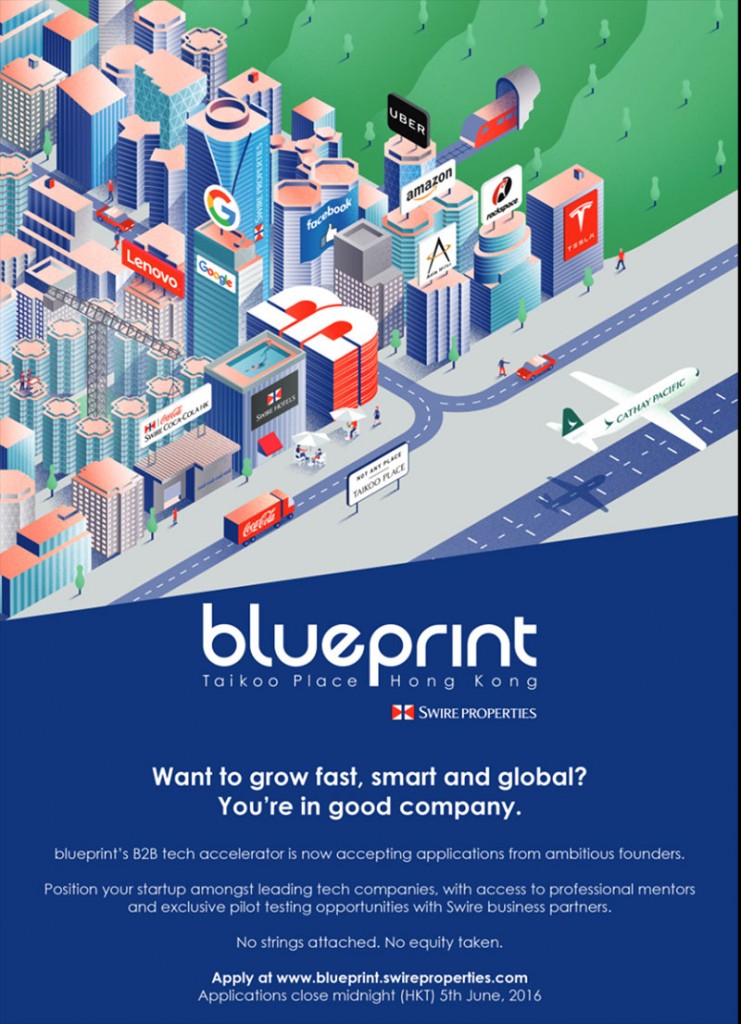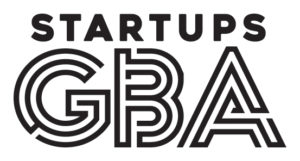
We’ve been following Swire Properties’ Blueprint B2B accelerator in Quarry Bay ever since it opened and so we asked Michelle Buultjens, Brand Strategy & Communications for blueprint – what lessons the team has learned over the past 365 days and this is what she told us:
“B2B” is perhaps not the sexiest buzzword, but it has recently attracted a lot of positive attention. With a significant increase in funding for B2B startups year-on-year, selling to businesses during a time of investment downrounds may just be where the future of startups lead.
In early 2015, blueprint began as a vehicle for corporate inovation and has burgeoned to become a thriving ecosystem of tech and B2B startups. One year on, we look back at lessons learned and how our startups have grown:
1) Awesome professionals don’t automatically make awesome founders
The vast majority of blueprint alumni founders to date have been experienced professionals, but that does not mean they necessarily knew how to start and run their own businesses from the get-go. When Kim Leitzes, founder of ParkLu, first joined the programme in July last year, she was a seasoned strategy consultant,, who had moved from the U.S. to South East Asia to build her startup. Upon joining the blueprint accelerator, she was then put into intensive entrepreneurial training from fundamentals of legal and accounting, to how to work with media, to sales and growth hacking best practices. Kim and her team grew their customer base from zero to ten, and onboarded 4 new employees to their existing team of 8 in order to achieve their targets. We like to think we helped ParkLu find their feet in some small way, but their success in their first year of operation was undoubtedly impacted by a diligent founder who applied everything she learned and poured it back into her business with gusto.
2) “Does anyone know a developer?”
If we were paid a dollar for every time we were asked that question! Hiring talent is a common challenge which startups face when starting a business. Tech talent is rare in Hong Kong and oftentimes a road block to starting a tech business here. Eventually, many of our startups found talent overseas and were connected to InvestHK, who were critical in helping them with issues related to employment visas. Easyship co-founders and blueprint alumni Tommaso Tamburnotti and Augustin Ceyrac have spent a disproportionate amount of time mining LinkedIn and holding interview marathons from blueprint’s quirky meeting rooms in order to scale up their business capabilities. Their perseverance paid off and their infectuous nature is now replicated in their dedicated and spirited team of 20 employees delivering to over 100 SME customers.
3) All customers are not created equal
Startups are expected to grow BIG and fast at the same time. B2B sales cycles, on the other hand, are often long and tedious, draining the resources of small teams as they present on high rotation to every influencer in an organisation until they met the budget owner. SnagR, a construction site management tool, was familiar with the methods of how to successfully court corporates before joining the blueprint accelerator. This team had found an effective way to promote their tool for corporate use through trials and testing, and we were excited to help them with that. Through connections made in our programme, SnagR were able to conduct pilot testing projects at Swire Properties construction sites, and a license to use their tool was purchased as a result. They even found unexpected uses for the app when speaking with mentors from another industry, opening up a completely new sales channel for them.
Growing a B2B startup may not reap immediate rewards, and with the growing cautiousness of investors now, it’s even more critical that startups create solutions that have a good product-market fit. Through the blueprint accelerator programme, startups can leverage the diversity of the Swire Group to better understand and test their product, or associate themselves with the brand to further grow their customer base.
We believe that the future lies in corporates working hand-in-hand with startups to drive innovation, increase productivity and together, ride into the sunset with a glimpse of legacy systems in the rear-view mirror.
Applications for the next round of the blueprint accelerator will close on the 5th of June 2016. Find out more and apply here.

